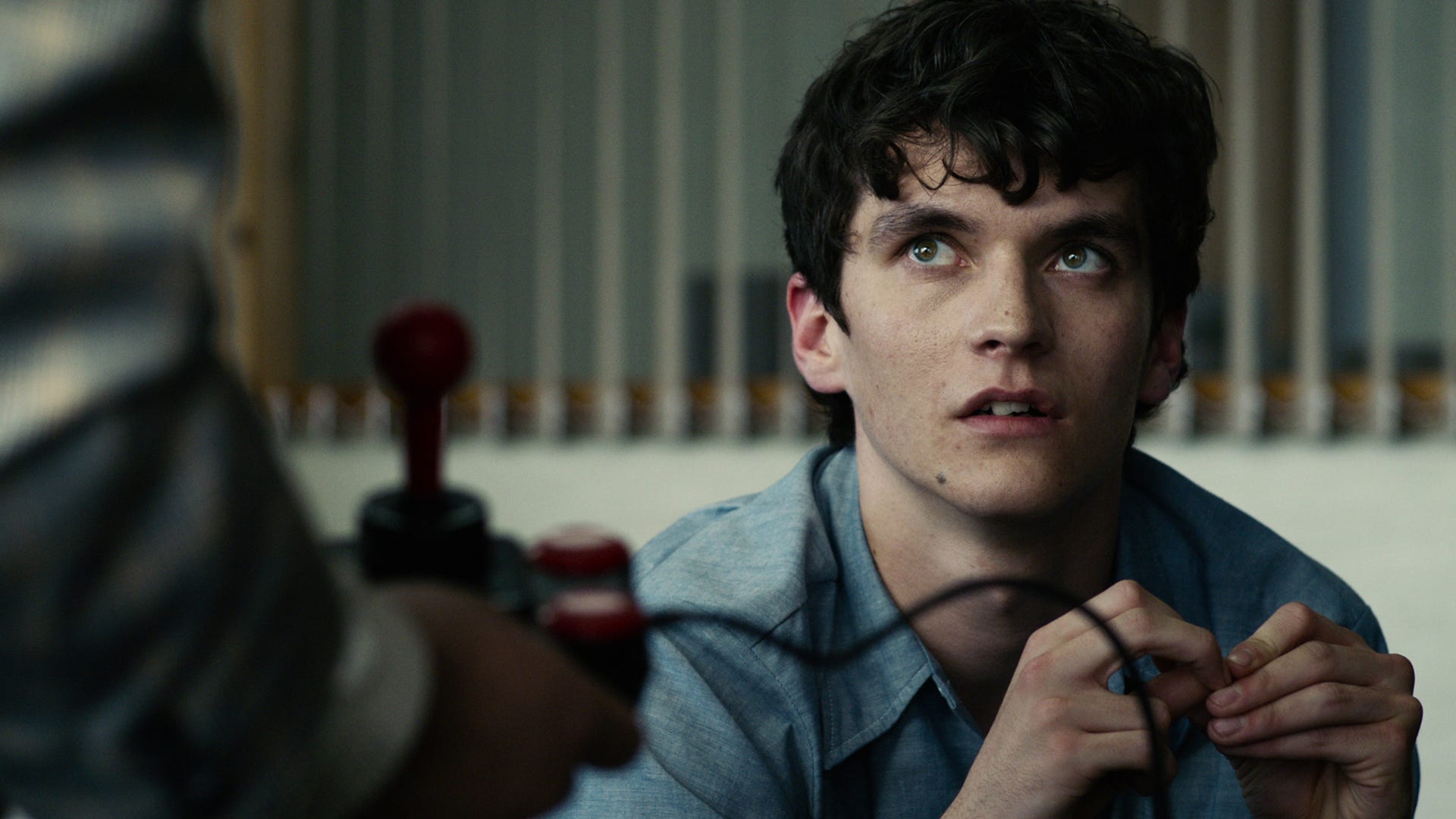Join or Sign In
Sign in to customize your TV listings
By joining TV Guide, you agree to our Terms of Use and acknowledge the data practices in our Privacy Policy.
Every Black Mirror Episode Ranked from Worst to Best
Updated to include all of Season 5
The beauty of Black Mirroris that there's a little bit of something for everyone in the Netflix anthology series. There's futuristic dystopias, post-apocalyptic thrillers, police procedurals, love stories, political satires, interactive video games, and a copious supply of sadistic twists to leave you crippled with despair for days. But Black Mirror is also so much more than a multi-genre exercise in bleak nihilism; it's one of the smartest and most inventive explorations of contemporary society and our culture's toxic relationship with technology. Most impressive, creator Charlie Brooker has churned out far more excellent episodes than disappointing ones over the sci-fi series' four seasons, only making it more difficult to rank them. As Black Mirror obsessives, we happily accepted to challenge.
After releasing the choose-your-own-misadventure episode, Bandersnatch, at the tail end of 2018, Netflix dropped three new episodes on fans' screens in spring of 2019: the trio, making up Black Mirror Season 5, featured some of the biggest stars in the show's universe, including Miley Cyrus and Avengers: Endgame star Anthony Mackie. Where do those Black Mirror episodes rank on our list? Read on for our definitive ranking of all 23 episodes of Black Mirror, from worst to best.
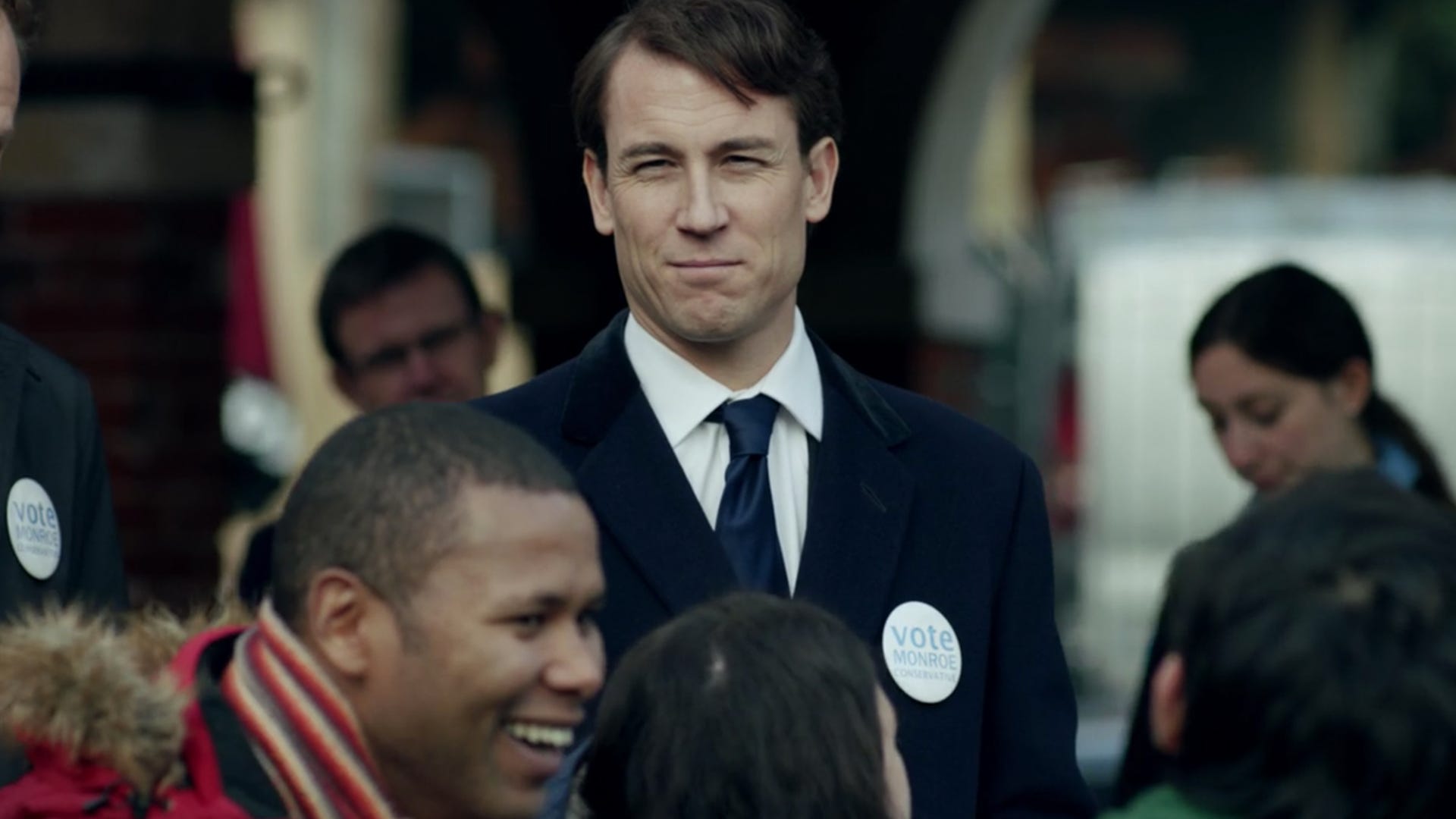
23. The Waldo Moment
The whole concept behind Black Mirror, as Brooker has said, is what our world could look like in 10 minutes "if we're clumsy." "The Waldo Moment" is the only episode of the futuristic series that felt both far too unrealistic and dated upon arrival. A crude cartoon character becoming a viable political candidate in an election isn't exactly an edgy concept -- not in 2013 when this debuted or in today's much more outrageous political climate. It's a frustratingly insipid attempt to denounce the circus of politics that falls remarkably flat.
22. Arkangel
We already have parental controls on our devices, so why not put 'em directly in the kids' brains? The child tracking device of "Arkangel" is spookily plausible, and an intriguing concept to explore, but the Jodie Foster-directed episode fails to take it into any interesting territory. "Arkangel" is one of the most lackluster of the series, free of the gurgling tension and sharp cultural commentary that makes Black Mirror so enthralling. When a teen beating her mom's face in with a tablet is a snooze, you know you've got a dud.
Discover your new favorite show: Watch This Now!
21. Smithereens
It's shocking that the same man who wrote "Nosedive," an incisive examination of our relationship with social media, also wrote the impressively insipid "Smithereens." In it, a rideshare driver (Andrew Scott, aka Hot Priest from Fleabag Season 2) kidnaps an employee of the titular Twitter-esque site so he can yell at the CEO (a pony-tailed Topher Grace) about how much he hates social media... because checking a notification caused his wife to die in a car crash. While relatable human tragedies and anxieties are often the foundation of Black Mirror's tech-centric storylines, here, Brooker's feeble premise fails to offer the poignant insight we've come to expect from the series. Instead of digging deeper into the psychology behind our growing addiction to social media, the ways it can harmfully impact our mental health, and the fear of losing control of it -- as Grace's character mentions -- "Smithereens" is ultimately about an angry white man who needs to go to therapy. (Read the TV Guide review of "Smithereens" here.)
20. Bandersnatch
It's hard not to initially be enamored by the innovative format of Bandersnatch. The meta nature of an episode where the viewer controls a video gamer as he questions the nature of free will is a clever thrill for the first... half hour. Then after five hours of deciding whether or not Stefan (Fionn Whitehead) will kill his dad with an ashtray, it's aggravatingly clear that there's little narrative reward beneath this elaborate exercise in interactive storytelling. The episode plays like a first draft in desperate need of a few rewrites, with undeveloped side stories and mundane world-building. But it makes you wonder: Is that part of the point? Is Bandersnatch really about how we've become so addicted to technology that we'll readily consume mindless, drab on repeat without hesitation? I expect better from Brooker.
19. Rachel, Jack and Ashley Too
Quick question: does Charlie Brooker know the majority of pop stars don't write their own music and that there are people called songwriters? Does he realize that a story about a pop singer (Miley Cyrus) who's put into a coma so her greedy manager can extract songs from her subconscious is a laughable and silly idea for an episode of television? What's most irritating about "Rachel, Jack and Ashley Too" isn't just how idiotic the plot is -- part of which involves a mouse-catching software; literally mice, like the animal -- but how it shows no interest in exploring the most fascinating ideas it presents. This could have been a sharp examination of the therapeutic and unhealthy aspects of hyper-fandom, or a deeper look at the divide between celebrities' public and private personas. Besides the spot-on casting of Cyrus as a mega pop star longing to break from her sculpted image and touching performances from Angourie Rice and Madison Davenport, this episode (along with "Smithereens") proves Black Mirror has begun to lose its edge. (Read the TV Guide review of "Rachel, Jack and Ashley Too" here.)
18. Metalhead
I've been haunted by those videos of military robot dogs for years, so "Metalhead" freaked me out for a good portion of its runtime. The David Slade-directed episode is an excellent 40 minutes of pulsating suspense as a woman flees from the murderous four-legged robot hunting humans down. The black-and-white photography and jittery hand-held camera lend the post-apocalyptic episode a rugged atmosphere and chaotic energy. But in service of what? The episode is so void of context and character development that it's merely bleak for the sake of bleakness. "Metalhead" feels like it's missing a key element that would make it all click together.
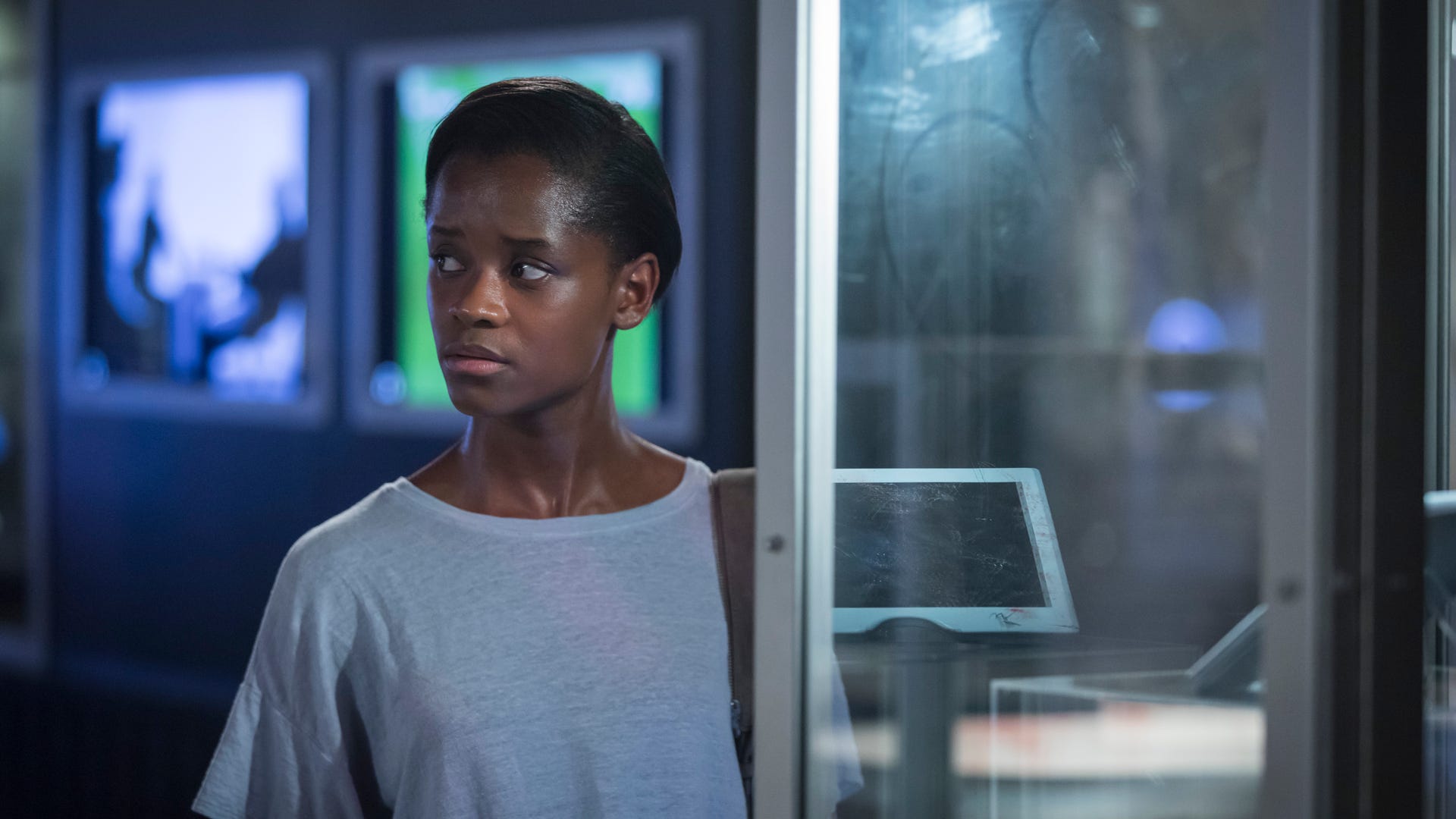
17. Black Museum
In this triptych of horror stories, a trio of new devices intended to help humanity lead to -- surprise, surprise! -- horrifying and tragic ends. The episode jams a handful of twists about humans' selfish abuse of technology into a brisk and entertaining 70 minutes. Yet whereas "White Christmas" pulls off the story-within-a-story format effortlessly, "Black Museum" is more clunky and fragmented, with too many ideas that don't quite mesh together. Put enough Easter eggs in your episode and you'll almost fool fans into thinking it's good.
16. Striking Vipers
"San Junipero" director Owen Harris (who also helmed "Be Right Back") has brought us another queer(ish) Black Mirror episode. Two longtime best friends (Anthony Mackie and Yahya Abdul-Mateen II) play a VR Mortal Kombat-like game only to quickly realize they desperately want to bone. And then they do. A lot. Using the typically-masculine genre of fighting games to explore repressed queer desire is fascinating, and gives way to some palpable tension throughout, as well as a hefty supply of hot sex scenes between the Ludi Lin and Pom Klementieff as the friends' video game avatars. But that presents another problem: "Striking Vipers" wants points for depicting a queer romance between two men, but beyond a brief non-VR kiss between them, the episode only shows heterosexual intimacy. This episode also left me longing for what could have been. This is a fictional world where people can use VR to live and experience the sensations of a body different from their own; what would have been especially powerful is a narrative about gender identity, and the ways VR could offer an alternate reality where trans and gender non-conforming characters could live freely outside of the binary, cis-normative world we live in. (Read the TV Guide review of "Striking Vipers" here.)
No, Black Mirror Won't Do More Interactive Episodes in Season 5
15. Be Right Back
Much like "The Entire History of You," the fourth Black Mirror episode is similarly interested in exploring how technology can magnify relationship trauma. But "Be Right Back" doesn't pack the same punch as the former. It's well acted by Domhnall Gleeson and Hayley Atwell, delicately photographed with an appropriate melancholic glow, and follows a creative concept that's rich with potential, but it never quite arrives at at anything profound beyond the simple notion that, yep, grief is devastating and you probably shouldn't reanimate your dead husband as a robot.
14. Men Against Fire
Conceptually, "Men Against Fire" is brilliant. It takes the censoring implant from "Arkangel" and "White Christmas" and uses it for the most abhorrent purpose imaginable: to orchestrate genocide in a military eugenics program. "Roaches," or people the government deems genetically undesirable, are visually manipulated to look like mutated creatures the soldiers are ordered to kill to save humankind. Take away the technology element and you have a disturbingly realistic portrait of institutionalized racism and xenophobia. But while the wide-angle view of "Men Against Fire" captures the heinous abuse of technology on a systemic scale, it's missing the character-driven narratives that make the best Black Mirror episodes linger with you. A tighter focus on a personal story could've anchored this tale and turned it into something memorable.
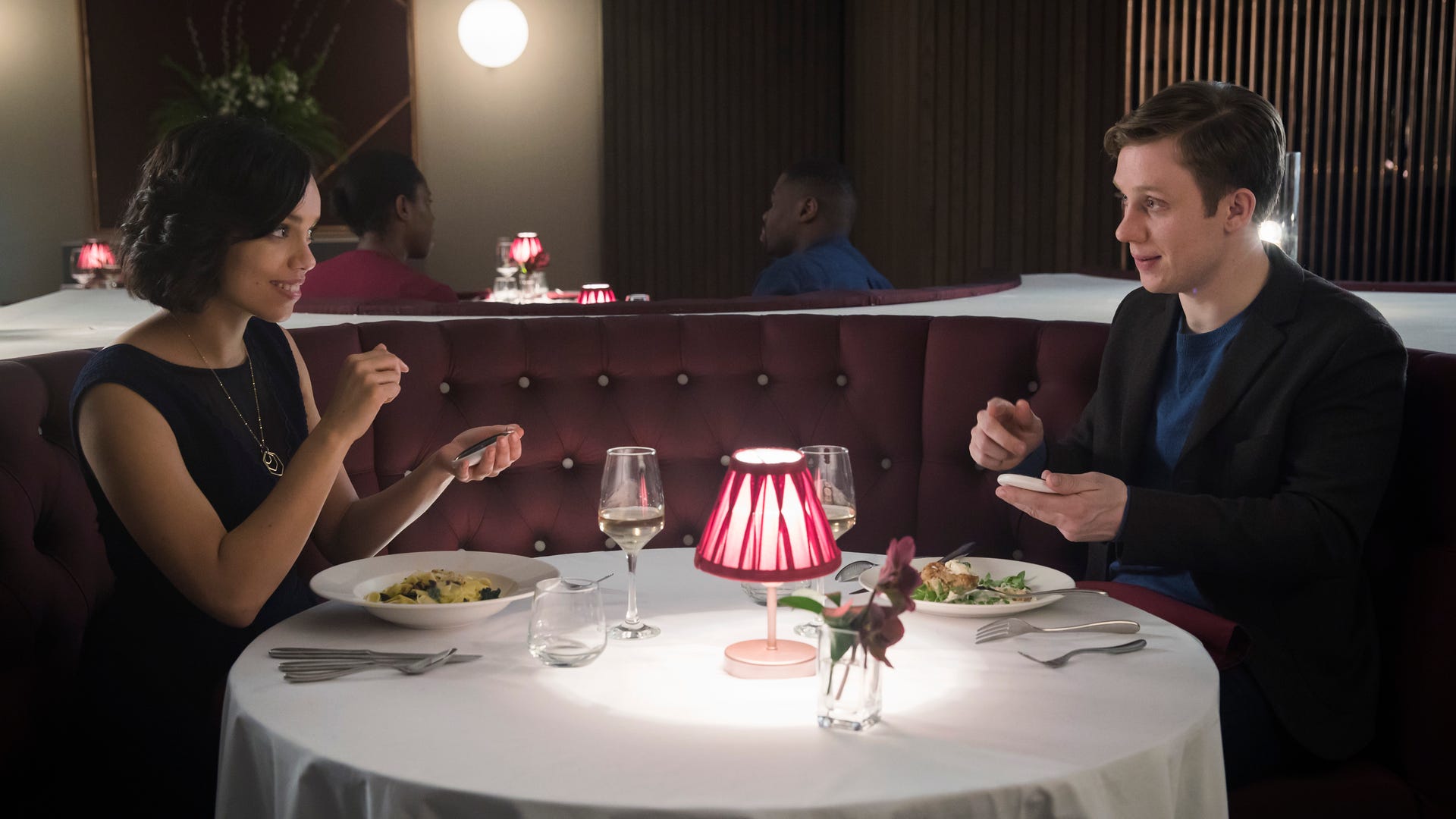
13. Hang the DJ
What actually goes on within the algorithms of dating apps? Could it simply be a copy of your consciousness running through hundreds of simulations with a new match? "Hang the DJ" explores that inventive take on simulated realities and dating in the charming episode from Game of Thronesdirector Tim Van Patten. It hits on all the relatable notes of a new relationship -- the sweet flirtations, the awkward first date, and the agonizing mistakes -- and throws in a refreshing sci-fi twist about defeating the system for love. Brooker is great when he's bleak, but he's got a hopeful romantic side I wouldn't mind seeing more of.
12. Hated In the Nation
A brooding Nordic crime thriller in the universe of Black Mirror is a combo that works remarkably well, and it's a shame Brooker hasn't given us more tech-based police procedurals. The concept of social media shaming leading to actual murder is -- as upsetting as this is to type -- not too shocking at a time where white supremacists and hate groups run rampant on Twitter. The only thing that places "Hated In the Nation" outside of the top 10 is its bloated runtime and languid pacing.
Every Easter Egg in Black Mirror: Bandersnatch
11. Shut Up and Dance
Much like "White Bear," "Shut Up and Dance" plays with perspective and the withholding of key information. It's a fascinating, if twisted, mental experiment that asks us to try to see the humanity in those who commit the most vile acts, while condemning our own fascination with watching those offenders suffer severe punishment. In "Dance," Kenny (Alex Lawther) appears to be an awkward teen just trying to keep his O-face private. Then we learn what kind of porn he was watching, which recontextualizes everything from the previous 50 minutes. It's a shattering, stomach-churning twist that leaves you lurching, as the best Black Mirror episodes do.
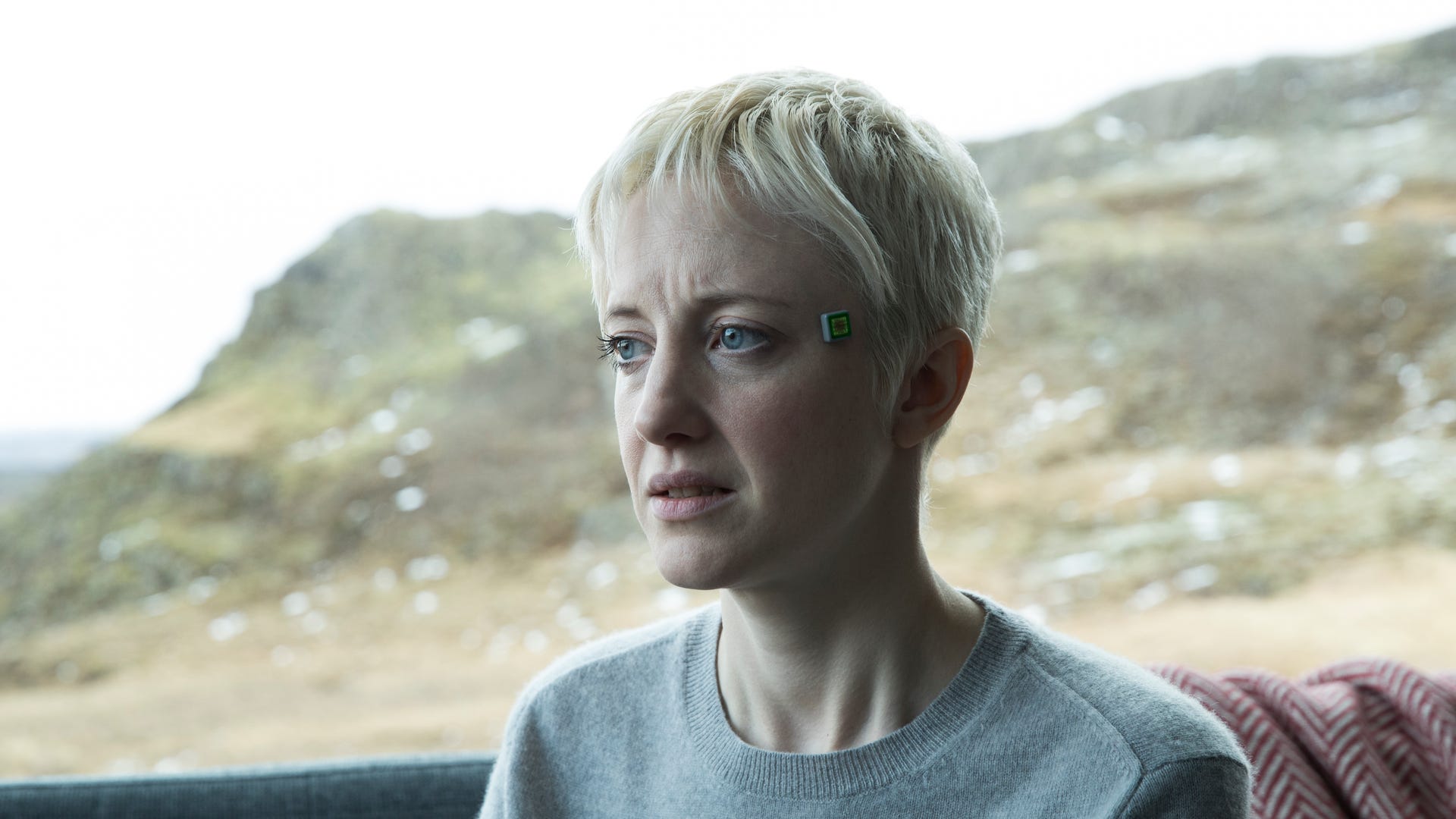
10. Crocodile
I often judge a good Black Mirror episode by whether it makes me anxiously pace across the room while shouting expletives at the TV. "Crocodile" did that for me as it led up to its final, gutting twist. What makes this slow-burning thriller work so well is how oddly empathetic Andrea Riseborough's Mia is -- she may commit a number of murders, but she's not necessarily a bad person; she's a woman desperate to escape a past mistake that continues to haunt her. It's distressing to imagine what you would do in her situation when your memories, especially your most shameful ones, are never just your own.
A New Emmys Rule Change Could Be Trouble for Black Mirror
9. Fifteen Million Merits
While the majority of Black Mirror episodes exist in a world largely familiar to our own, "Fifteen Million Merits" is a jarring jump to a futuristic dystopia. It's a fascinating, if perturbing, critique on capitalism that imagines a society where working class individuals are slaves to consumerism, obsessed with reality television, and live through their digital avatars. Wait, did I say this was the future or an accurate snapshot of reality? The episode doesn't get nearly as much credit as it deserves among fans. It's layered commentaries on consumer culture and socio-economic status are some of the smartest of the series, and features one hell of a Daniel Kaluuya performance.
8. Playtest
There's a deceptively fun breeziness to the first half of "Playtest," largely thanks to Wyatt Russell's charming and adventurous Cooper. What begins as innocuous haunted house spooks soon erupts into a nightmare of psychological torment a director Dan Trachtenberg ratchets up the tension with a crafty swiftness. A video game based on a fear of spiders and ghosts is one thing, but one that pulls from the deep reservoir of personal trauma? Only Brooker could come up with something so demented. The end of "Playtest" is genuinely one of the most upsetting finales of Black Mirror, and it hits you hard like a wall of cement out of nowhere.
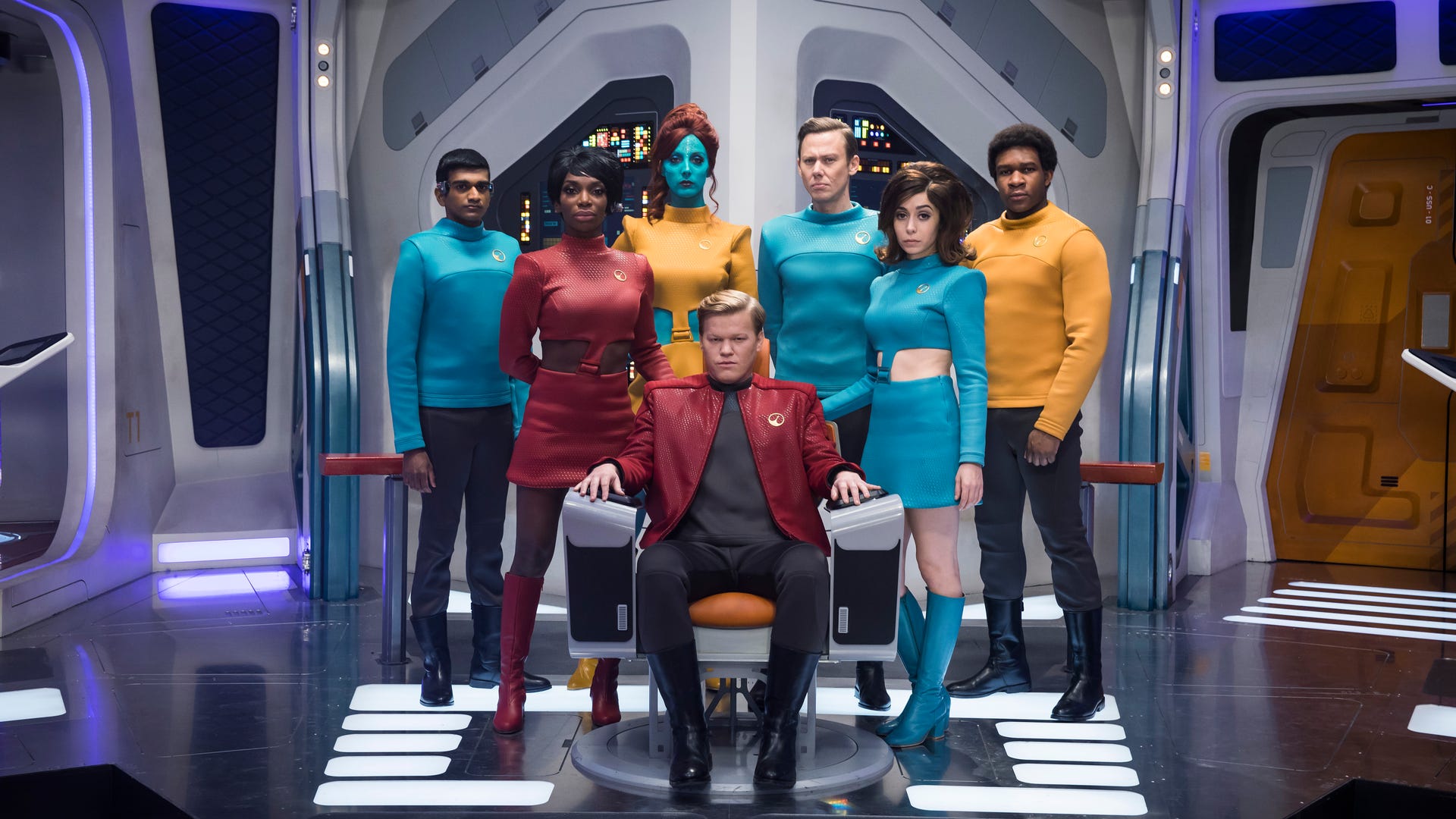
7. USS Callister
Here's an example of an extra-long Black Mirror episode that earns every minute of its expanded runtime. "USS Callister" borrows elements from previous episodes -- cookies, alternate realities, and questions around consciousness -- and melds them into one of the most clever concepts of series. The entire world of the Toby Haynes-directed episode is bursting with a vibrant specificity and liveliness, from the complex and visually dazzling world of the Star Trek-esque Infinity game to the fleshed-out cast of characters, each perfectly cast with the series' best ensemble yet. As one of the few installments that won't leave you paralyzed with despair, it's endlessly rewatchable.
6. The National Anthem
"The one where the guy f---s the pig" has become the prime example of the f---ed up extremes Black Mirror indulges in. But, curiously enough, people never describe this episode for what it really is: "the one where everyone is so busy watching the guy f--- the pig that they fail to notice the kidnap victim was released." This thrilling satire, which kicked off the series in 2011, is all about our twisted obsession with the media. Even if that notion feels somewhat outdated in 2019, when we've all acknowledged our unhealthy addiction to social media (and continue to voraciously consume it anyway), it remains unnervingly relevant. It was the perfect introduction to the Black Mirror universe, which only developed an increasingly more bleak worldview from here.
Miley Cyrus Confirms She's Going to Be in Black Mirror Season 5
5. Nosedive
Go ahead, pretend all you want that you don't care if your witty tweet doesn't go viral or your Instagram selfie only gets 30 likes. But deep down, you know you're a Lacie (Bryce Dallas Howard). We're all Lacies -- except those who are shamelessly Naomis (Alice Eve) -- and we're all just trying to get through the day creating some good social content. "Nosedive" has its finger on the pulse of our present, toxic relationship with social media, and how much it screws with our mental health and perceptions self-worth. We may not live in a world where our social media presence determines our socio-economic status (thankfully), but "Nosedive" is the closest any show or film has come to understanding our destructive craving for validation on the internet. When the great-grandkids ask about social media, play this documentary in school.
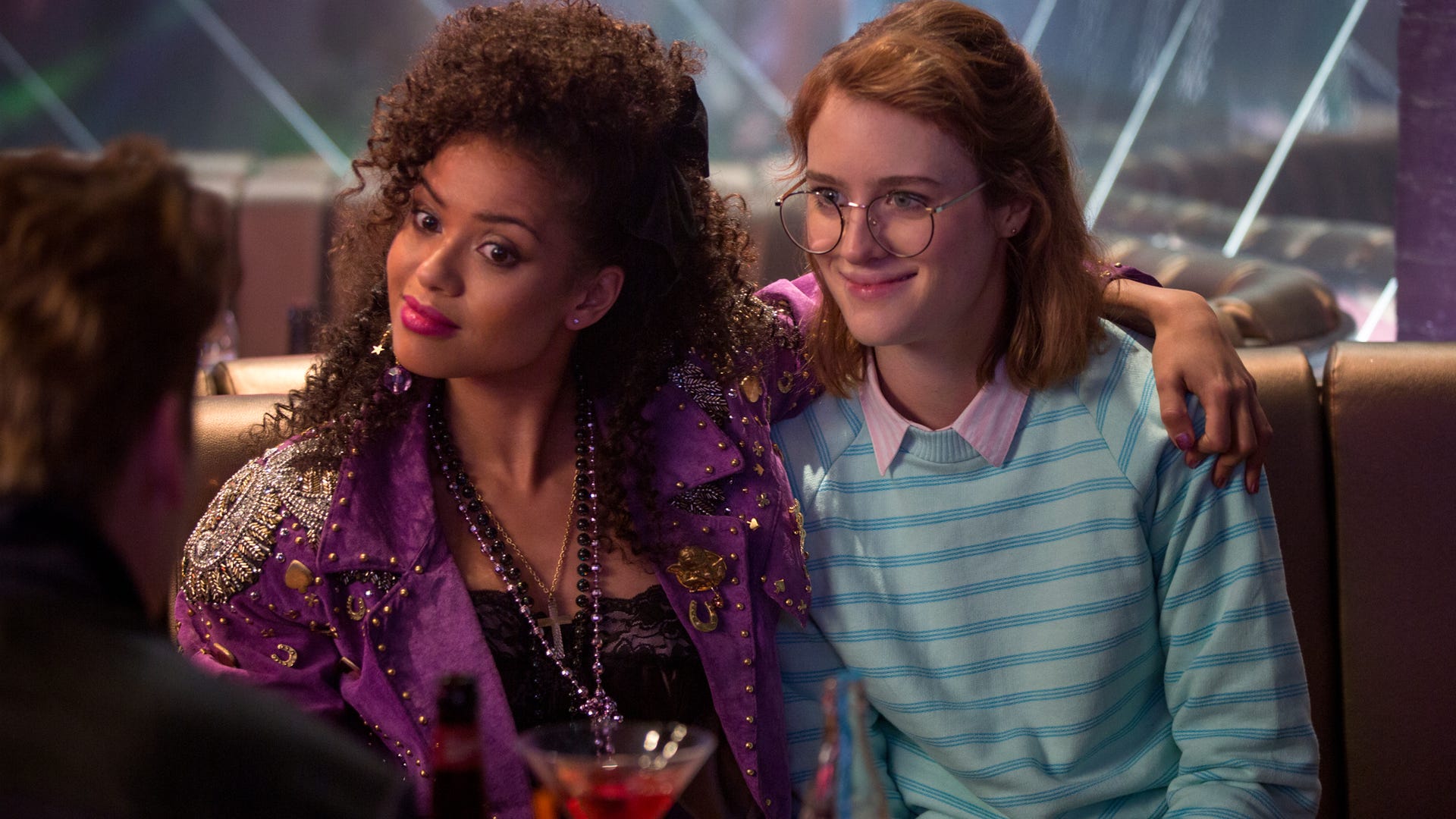
4. San Junipero
"San Junipero" is a beautifully radiant bright spot in the exceptionally grim nihilism of Black Mirror. But its optimism isn't the only thing that makes it such a standout. It's a tender, humanistic queer love story. One of the best-written episodes, it slowly reveals the truth behind the seaside afterlife and its significance to Yorkie; and it features two of the most charismatic performances of the series, with a timorous Mackenzie Davis and a magnetic Gugu Mbatha-Raw. Watching two elderly, dying women get a second chance at life, and a chance to live for themselves this time around, is a sweetness the series never seemed capable of.
The Publisher of 'Choose Your Own Adventure' Books Is Suing Netflix Over Bandersnatch
3. White Christmas
The Jon Hamm Christmas special was the first time Brooker took his series to the next level, deftly weaving multiple stories into a single narrative, each packed with their own uniquely horrifying twists. It's an excellent piece of writing that skillfully juggles multiple concepts, overlapping narratives, and characters that all neatly tie together in a characteristically tragic ending. It's also one of the few times we get to spend a good chunk of time with a single character, and Hamm, as the sly, desperate Matt, gives his most affecting performance outside of Mad Men.
2. The Entire History of You
Black Mirror is all about the ways in which technology can exacerbate, expose, or enable our most shameful impulses. Most of the time, those cases are a little too extreme to entirely connect to, but in "The Entire History of You," one man's emotional breakdown is the most immediately relatable incident of the series. It's excruciating to watch Liam (Toby Kebbell) obsessively replay his grain memories as he searches for evidence of his wife's infidelity, mainly because it's not hard to imagine yourself doing the same if given the option to repeatedly scrutinize everything you've witnessed. Why place any faith or value in a single experience if it can be digitally archived and stored away to relive later? We may not have grain implants (yet), but "The Entire History of You" is a devastatingly accurate example of how technology has led us towards such discontent with the present moment.

1. White Bear
"White Bear" is the quintessential Black Mirror episode. It impressively accomplishes exactly what Brooker's series aims to do: showing us a reflection of ourselves at our most callous, our most sadistic, and our most grotesque. Through nerve-jangling suspense and an expertly crafted narrative that keeps us in the dark until the final reveal, Brooker's masterpiece recalls the cunning, twisty storytelling of the very best ofThe Twilight Zone. Victoria Skillane (Lenora Chichlow) may be the accomplice of a child murderer, but the everyday spectators taking pleasure in her humiliation and violent punishment are the ones exposed as the real monsters. Its Black Mirror at its most harrowing and merciless, just like humanity when exposed at our worst.
Black Mirror is available to stream on Netflix.
PHOTOS: The 52 Netflix Originals You Should Be Watching
